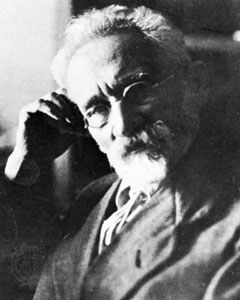Though I guess I gave Eytan Fox's The Bubble a lukewarm review, I became a bit obsessed with it. I've now watched it maybe two or three times (I know, there is something wrong with me.) It clearly struck some kind of chord in me, even though I still think it was somewhat lacking in a few aspects. I just now saw another film Bent, that is referenced in The Bubble and it somewhat changed my perspective on the latter.
There's a scene in The Bubble where Noam, the Israeli main character, takes Ashraf, his Palestinian lover, to see a play. The play is Bent, a 1979 play by Martin Sherman, about two gay men in a concetration camp in 1930s Germany. One of them wears the customary pink triangle, the other has "made a deal" with the guards to get a yellow star instead, as he thinks he will get treated better as a Jew. In the scene we see in The Bubble Ashraf and Noam watch the main characters in Bent make love through words — without touching — while on a three minute break from penetential labour with a Nazi guard watching over them. Afterwards one of them says to the other "We did it, we made love, fucking guards, fucking camp, we did it, we are human, we exist." That of course is more or less the main point of the impossible love story in The Bubble.
Bent was adapted into a movie in 1997. I'd never heard of the play or the movie before I saw The Bubble but it had me curious as there were a quite few intertextual references to Bent in the movie. I promptly added Bent to my Netflix list and watched it. It turned out to be an extremely depressing and pretty graphic and brutal film, but also — as Noam says in The Bubble one that gives food for thought.The story poses questions about agency and the morality of sacrificing oneself or a loved one one can not help, when faced with such a conundrum.
(A warning to anyone who intends to see either film or play, there are major plot spoliers ahead:)
In its essence Bent is about men trapped in circumstances that brutalize them. The choices, cruelties and dirty deals they have made to survive weighs on their conscience. In the end they chose to exercise the only form of agency they have, first to fall in love have (virtual) sex and forge a human connection, and then, ultimately refuse to participate in the brutality around them through the only means they still have at hand: committing suicide rather than being killed.
There are some obvious parallels to The Bubble and seeing Bent emphasized some aspects of The Bubble that were less clear to me before. Specifically it changed the way I see the ending, where Ashraf blows himself up in an empty Tel Aviv street after his sister has been killed by Israeli soldiers.
Before pushing the detonator, Ashraf looks at Noam and makes the same sign the men in Bent use to signify their love for each other, also the same sign one of the uses before committing suicide by rushing an armed guard rather than be forced at gunpoint to electrocute himself on a fence. Ashraf runs away from Noam into an empty street, but Noam runs to him and they both die together.
Againts the backdrop of Bent the ending looks more like an act of protest againts being trapped in brutalizing circumstances than offensive stereotyping. Of course, it is still not unproblematic, but it certainly changed my perception of what Eytan Fox is trying to say in The Bubble. As always with obscure references, one can ask onself if the film has succeeded when it is necessary to dig out an obscure play in order to fully understand it, but that is another matter.

